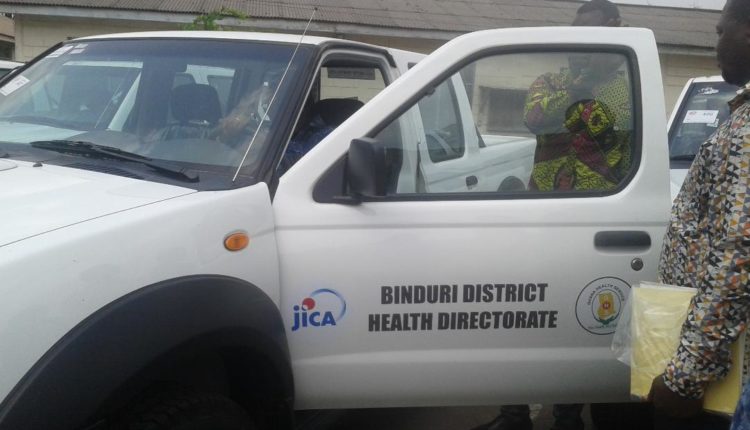The Japan International Cooperation Agency (JICA) on Friday handed over the keys to 26 Nissan Pickup vehicles to the Ghana Health Service (GHS) to support service delivery in the three northern regions.
Ms Ozawa Maki, a Senior Representative of JICA, presented the keys to Dr Anthony Nsiah-Asare, the Director-General of the Ghana Health Service in Accra.
Ms Maki said in addition to the pickups, JICA would provide grant for the procurement of motorbikes to complement service delivery to areas where access by cars were difficult.
Dr Nsiah-Asare thanked JICA for its continuous support to Ghana’s health sector, saying it would go a long way to fill a huge gap in the health delivery system.
He mentioned the beneficiary districts in the Upper East Region as Pusiga, Binduri, Nabdam, Kassena Nankana West, Bawku Municipal, the Bolgatanga Municipal, Builsa North and South and Bongo.
Those in the Upper West Region were Sissala East and West, Wa East and West, Jirapa, Daffiama Bussie Issa, Nadowli-Kaleo, and Lambussie.
The Northern Region also had beneficiaries from the Mion, Sawla, Tuna and Kalba, Karaga, Saboba, Central Gonja, Chereponi, East Gonja and Zabzugu districts.
Dr Nsiah-Asare indicated that with the present support, all districts in the Upper West Region have been fully covered with “One District One Pickup”.
He said Ghana was poised to achieving Universal Health Coverage (UHC) at the primary health care level by 2020, ahead of the deadline of 2030 through the support of partners and other stakeholders.
To achieve this goal, JICA had been supporting the Service in many ways to improve service delivery through Grant Aid for Community Health Planning and Services (CHPS) implementation, which was one of the country’s programmes and a key strategy towards attaining UHC and bridging the access inequity gap, he said.
Dr Nsiah-Asare said the support also included Technical Assistance in capacity building of health workers, designing of service delivery and management tools, as well as infrastructure and equipment.
He said the vehicles were to support activities of monitoring and supervision, training and any other Public Health-related activities at the districts, with the over-all aim of strengthening the quality of service delivery there.
He, however, asked regional directors to monitor and supervise the use of the vehicles and ensure they were not misapplied by the district directors for their personal use.
The Director-General further entreated all managers to ensure safety and regular maintenance.
GNA


Comments are closed.